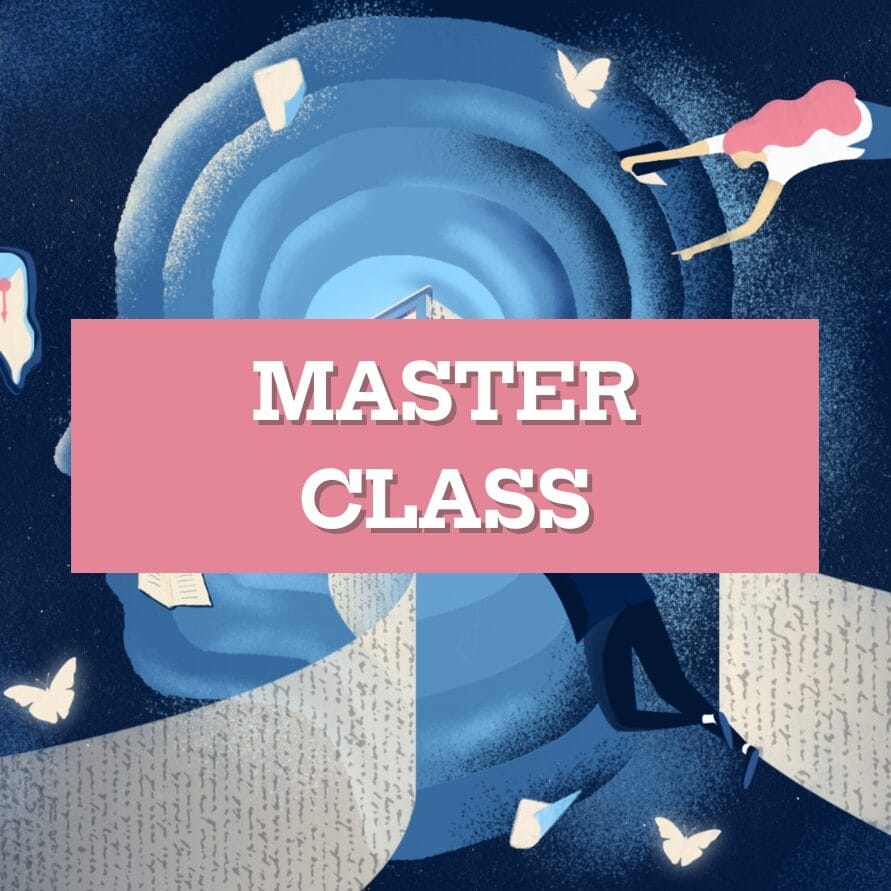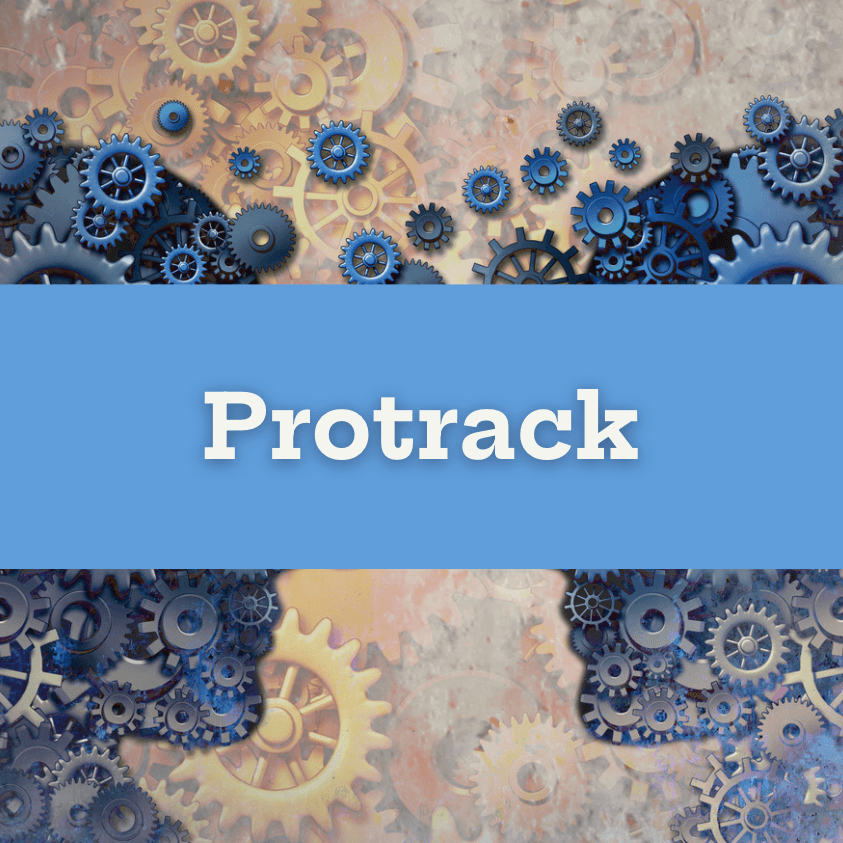Past Lives: Genre & Premise
This week, we are going to be analyzing the screenplay for Past Lives, written and directed by Celine Song. We’ll use Past Lives to explore the intersection of two key concepts: Premise and Genre.
We’ll look at the places where premise and genre meet and how they come together. And we’ll use that intersection to help you understand how to develop ideas, how to develop premises, how to develop the thing that’s going to differentiate your script from other movies within your genre.
Further on in this transcript, there will be some spoilers for Past Lives. If you’ve seen the movie, you know that the whole thing builds to the ending, and you cannot understand the screenplay for Past Lives without understanding the ending. So I will warn you before I spoil it, but I am going to eventually spoil the ending of this movie if you have not yet seen it.

Let’s start our screenplay analysis of Past Lives by defining some terms: What is genre and what is premise?
We’ll start with genre.
If you’re old enough to remember Blockbuster Video, then you know that genre is what you and your partner fight about when trying to pick a movie.
One of you is in the Drama aisle, looking for a beautiful little drama. The other is in the Action aisle, looking for a really exciting action movie.
“Let’s watch Die Hard,” you try to convince your partner, “it’s a… love story!”
“How about Remains of the Day,” they try to convince you, “it’s a… war movie!”
You’re trying to convince each other that your emotional needs, the feelings that you’re coming to the movie for, are going to be met. That’s actually what genre is.
Genre is a feeling.
Even back in the Blockbuster era, genre was very hard to categorize.
It’s 1987. You’re looking for, say, First Blood. You look all through the Action shelves and you can’t find it. Finally, you ask at the desk and the dude says, “It’s in Drama.”
Even back in the day, when genres used to be really simple, it was still hard to categorize things. There’s always crossover. A movie is not just one thing. So, it has always been hard to label movies as one single genre.
Today, Netflix has something like 270,000 tags that they use to try to define a movie’s genre. So we think we know what genre is, but we kindof… don’t.
We’re going to a western, so we expect to see Cowboys… but Star Wars is a western, right? Or is it a sci-fi?
We think we know what genre is, but it actually becomes really hard to define. As soon as you put a label on it, you realize you’re not completely right
And today, we have movies that are a mix of genres, really interesting mixes of genres– in ways they weren’t mashed up back in the Blockbuster days. So that means, in today’s market, it’s even more complicated to ask, “What genre is this film?”
So I want to give you a way of thinking about genre that is going to simplify it for you. A way to get past the confusing labels.
Genre is a mixture of the feeling that the audience wants when they go to see your movie and the expectations they have of what’s going to give them that feeling.
Those expectations are based on other movies that gave them that feeling.
Feeling is the only reason anyone ever tunes into a TV show or goes to see a movie. We go to see movies because we want a specific feeling.
If the movie gives us stuff on top of that feeling, wonderful.
If it makes us feel and it makes us think, great.
If it gets our adrenaline pumping and it also says something about the world, great.
But if you don’t give them the feeling your movie or TV show promised them, they’ll eat you alive. It will feel like a bait and switch. And the audience doesn’t like that feeling. Just like you don’t like that feeling.
If you show up for a romantic comedy and you leave feeling that love isn’t possible, you’re going to be mad. You came to a romantic comedy because you want to feel like love is possible.
If you go to an action movie, and it’s brilliantly written with beautifully dimensional characters, but there’s no frickin’ action and your heart isn’t pounding and your adrenaline isn’t pumping, you’re going to be mad.
If you go to a thriller, and you don’t feel scared, you’re going to be mad.
Because you came for the feeling. And that’s why you’re fighting with your partner over what movie to watch. Now on Netflix, then at Blockbuster, you’re fighting because you want slightly different feelings. And those feelings are important enough to motivate you to spend two hours of your time watching a movie.
If you’re writing for television, its even more complicated.
If you’ve studied with me in Write Your TV Series, you know the audience not only wants the feeling, they want the same feeling every episode. And they want that feeling delivered in a slightly different way. They want it to look different, but feel the same. They want it to be the same, but different. Same feeling, different plot.
And this is how you create an engine that can actually drive a series. An engine creates the same genre feeling every episode but feels different, so that it doesn’t feel like we’re getting the same thing again and again.
And in movies, this is also true. We come to movies because we want a feeling. And connected with that feeling are certain kinds of elements that we come to expect in these movies or in these shows.
That doesn’t mean you can’t have other elements, but it means if you don’t do these genre elements, something’s wrong.
Often, in the industry, people use the phrase “genre films” to describe films that fit a narrow commercially in-demand genre like horror.
But the truth is, whether you’re making a complicated character driven film like Past Lives, or traditional genre driven horror movie, every film is a genre film, which means it comes with promises.
If you’re making a slasher film and there’s no blood and guts, something’s probably wrong. If nobody dies, something’s probably wrong in your slasher film. If there’s not a cool evil thing going on in some way, there’s probably something wrong in your slasher film.
That doesn’t mean you can’t turn it upside down and write a movie like Tucker and Dale vs. Evil.
But even in Tucker and Dale vs. Evil– which is a hilarious little slasher movie from the perspective of two very sweet rednecks who are seen as killers by the stupid kids who have seen too many horror movies– even if you turn it upside down, you still need to have those horror elements. You still need to have the blood, you still need to have people dying, you still have to get some laughs. Or it’s not going to work.
If it’s a psychological horror movie, you want a different feeling. You leave a Friday The 13th movie with an entirely different feeling than when you leave a film like Hereditary or A Quiet Place.
These are genre feelings. There are certain elements that we expect to happen that give us those feelings.
Bringing all this back to the screenplay for Past Lives, this film lives in a genre. Past Lives is a Romance.
(Specifically, Past Lives is an Evangeline story. We’ll get to what that means. But for now, to keep it simple, Past Lives is a Romance).
That means you go to see Past Lives because you’re expecting all the emotions that come with romance. That’s what the film has promised you.
The title feels like a romance. The promotional artwork feels like a romance. The movie is designed to say: You are going to feel romance feelings: sad romantic feelings or happy romantic feelings.
Beyond that, Past Lives fits into a popular genre of Romance movies: it’s a love triangle. And we start to get that promise from the very first image.
So there are certain things that we’re telling ourselves are going to happen as Past Lives unfolds.
We enter a film of any genre with certain expectations of the things that are likely to happen in this kind of movie. And if none of those things happen, we’re going to be mad.
But if those things happen in exactly the way that we’re expecting, we’re also going to be mad.

This connects us to the second term I want to talk about in our analysis of Past Lives: Premise.
Premise is the idea that helps distinguish your film (or your TV show) from all the others in the genre. It’s the little twist that you have come up with, the way you’re looking at the genre in a slightly different way.
When Pretty Woman came out, we had all seen a million rom-coms. But Pretty Woman had a premise that set it apart from others in the genre. It’s a rom-com where the female lead is a sex worker. That was a twist on the genre. That’s its premise.
In writing most screenplays, we’re not completely reinventing the wheel. We’re not making Synecdoche, NY, which was a completely genre-busting film. (It even busts the genre of a “Charlie Kaufman movie”). Usually Charlie Kaufman movies make you laugh and they blow your mind open. Synecdoche, NY doesn’t make you laugh. Even thouugh it blows your mind open.
But because we don’t laugh, it’s actually a much harder movie for us to palate than a movie like Adaptation or Being John Malkovich or Eternal Sunshine of the Spotless Mind. We come with the genre expectations of a Charlie Kaufman movie– weird stuff is going to happen and it’s going to make us think and it’s going to make us feel… and usually despite all the complication, it’s going to make us feel, on some level, like love is possible or impossible. It’s a subgenre of romantic comedy.
In Past Lives, we’re expecting a love triangle. We’re expecting the love triangle to manifest in certain ways. We’re expecting tears. We’re expecting pressure. We’re expecting complications.
And if none of those complications happen, we’re going to be mad. Because we came for those complications. But if those complications happen exactly the way we expect, we’re also going to be mad.
So, one of the ways you can come up with premises is by watching a lot of movies in a genre, and asking yourself, what’s not true? What’s not being explored? What’s missing? What are the writers not looking at?
Because what happens in filmmaking in any genre is that eventually writers and producers and directors start to learn what works. So they start to do what works again. And again. And again and again and again and again.
When you keep doing what works over and over, a bizarre thing starts to happen. It starts to not work, because it’s not surprising us anymore.
It’s not taking us on a journey. It’s just taking us on a well-trodden path.
The first time we tried that path, it was really exciting. And even the second or third time, it was compelling. But after you’ve walked a path 700 times, it starts to lose its appeal. You naturally start to wonder if there’s a different path.
This is one of the things that the screenplay for Past Lives accomplishes brilliantly: delivering a premise that both meets and surprises the expectations of its genre, to turn an old path into a new one.
Spoiler alert: From this point, this article will reveal spoilers about Past Lives, so if you haven’t seen the movie yet, you might want to stop reading, bookmark this page and come back later. I’ll still warn you before I spoil the ending, but we’re about to get into the story now…
Here’s the premise of Past Lives:
It starts with two 12-year-old kids, Nora and Hae Sung. And these kids love each other, in some ways like 12-year-olds love each other, but in others that are special. They’re soulmates. They are meant for each other.
They go out on one very innocent date, and then they are forever separated.
Nora’s family is immigrating to Canada, and Hae Sung is going to stay in Korea. They’re going to be separated.
I mentioned earlier that Past Lives is an “Evangeline” story.
Evangeline is an old myth that has given birth to many, many stories.
Evangeline and Gabriel are two young Acadian lovers. On their wedding day, their village is attacked, and they are separated before the wedding can be completed.
(This is all based on real history. This is actually how New Orleans was founded. The Acadians were driven out of their homes, fled throughout North America, and eventually settled in New Orleans.
The myth of Evangeline follows both lovers, Evangeline and Gabriel across the years. They spend their lives looking for each other, but they keep passing each other like ships in the night, not realizing how close they are.
They’re on parallel journeys, but they just keep missing each other.
And eventually they realize, even though they’re soulmates, that they will never find each other. So they both marry and have families and end up leading their own lives. They are still connected emotionally, even though they have lost each other, but their lives progress without each other.
At the end of the Evangeline story, decades later, Evangeline has become a nurse in the Civil War. She goes into a tent to care for a dying soldier– who turns out to be Gabriel…
And they have one final kiss before he dies.
Evangeline is this beautiful story about soulmates who, like the characters in Past Lives, don’t get to be together in this lifetime.
It’s a story that builds to that one kiss between these two people who are meant for each other but keep missing each other. They end up building wonderful lives, that are just a little bit emptier, because they don’t have each other in them.
Since Past Lives is an Evangeline story, it’s already fitting a model.
If you’re a writer who knows the myth of Evangeline, you know certain things are likely to happen. Once you realize it’s an Evangeline story, you start to go, Oh, okay, we’re going to get that one kiss at the end.
And even if you’re a normal audience member who has never heard of Evangeline, you are still promising yourself that kiss…
Okay, the spoiler for the ending is now coming…
In Past Lives, writer/director Celine Song is not going to give you that kiss.
She is going to drive Nora and Hae Sung as close as they can possibly get to that kiss. But the kiss is never going to materialize.
The premise of Past Lives is built around that denied kiss, but since we won’t know that until the end, the screenplay is also going to perform some other wonderful twists on the genre, from the very beginning, to help the audience realize it’s going to be both the same, and different.
We’re going to do a romance, we’re going to do an Evangeline story, we’re going to do a love triangle. All those things are happening.
But we’re also going to change the location.
The location of the story in Past Lives is the immigrant experience.
You can see, I’m not just talking about the physical locations of Korea and Canada and America. I’m talking about the “location” where the heart of the story lies.
The heart of the story lies in the immigrant experience. It lies in the beauty and the disruption of having left one place for another, having left your ties and having left your culture.
These two people have grown up in different ways. He has grown up in Korean culture, while she left Korea and grew up in American culture. They developed different dreams and different journeys and different visions and different self-views.

Past Lives lives in that immigrant experience. That is the location of the story.
We’ve seen lots of romances, we’ve seen lots of unrequited romances, we’ve seen lots of Evangeline stories.
But the first twist of this premise is, What if we placed an Evangeline story in the immigrant experience?
And suddenly we have a movie that feels new from the very beginning, even as it fulfils all our genre expectations.
The second twist in the genre is much more radical: What if we denied that kiss?
What if rather than building towards the final kiss– the moment that we’ve all been waiting for– what if we denied that kiss?
We all want Nora and Hae Sung to kiss. We all know that, even though Nora loves her husband, there is a chemistry and a passion and a sexual tension between Nora and Hae Sung that we want to see come to fruition.
But Nora is not going to be disloyal. She’s not going to have the affair. Instead, she is going to deny it, she’s even going to deny the need for it. She’s going to deny her own passion for Hae Sung.
He’s so open and vulnerable about his need for her. He’s come all the way to America for her, even knowing she’s married. He just wants to see her and he wants to be with her.
But she is married to somebody else, and they’re having their own life, and their own life is good.
And it’s different.
We want to see Nora kiss Hae Sung. We want to see all the drama that we’re expecting to unfold by the love story. But the premise of Past Lives says, No, that’s not what you’re getting.
We’re not going to explore the love triangle that shatters everything. We’re not going to tell the story that we’re used to seeing from Hollywood. Instead, we’re going to do a little twist on that romance.
We’re going to tell the story of what happens when you choose to say no.
What happens when you choose to stay loyal?
What happens when you choose something beautiful and actually let something else go?
So even though we’re in this romance, we’re going to a different destination.
The ending of Past Lives is absolutely devastating because you’ve seen Nora seem like she’s so OK throughout the film.
It feels through the whole piece like Hae Sung is the one who’s so hurt, who’s so vulnerable.
And then you get this beautiful moment, where she says goodbye to Hae Sung. And the kiss we’ve been waiting for: they’ve gotten so close, and it hasn’t happened.
Nora goes back to her husband, having said goodbye. And she just breaks into sobs.
It’s so wonderful and surprising and devastating, because you’re waiting for the kiss, and then you’re denied the kiss.
Through most of the structure of Past Lives, we are led to believe it’s a movie about a guy who loves a woman, and a woman who’s moved on.
Yes, of course, Nora still feels connected. But she’s not telling herself a love story.
At first, she convinces herself that she’s just catching up with an old friend.
Then, even when she realizes, as her husband has suggested, that Hae Sung has come for her, she’s telling herself the story that she just wants friendship, she just wants to see him again.
But it’s not until the sobs come that we, and Nora, both realize that this is a love story between the two of them– that she’s actually mourning that loss as much as he is. That her life will be beautiful. But there’s something else that’s beautiful that has also been lost.
You can see that this premise runs all the way through the structure of Past Lives. It’s even in the title Past Lives. It’s about the immigrant experience and the past life that you left. It’s about the loss of your culture. And the loss of a soul connection.
Constantly throughout Past Lives, Nora says about Hae Sung, “He is so Korean.” And of course, she’s also Korean, but she’s Korean-American.
Past Lives is about what happens when you choose one thing instead of another. It’s not about the love triangle we’re expecting. It’s about the love triangle that doesn’t materialize. But it’s also about the tremendous pain that comes with actually letting go. It’s about, Not in this lifetime, maybe in another.
So we have this really beautiful, beautiful, elegant premise. And that premise is just a twist on the Evangeline story. it’s just a twist on the more familiar genre of the love triangle. And the twist denies you the love triangle that you’re expecting.
So why aren’t you mad?
This is the really interesting thing we can learn from Past Lives about premise and genre and where they intersect.
You have to do the premise and you have to do the genre, but you don’t have to do it the way people are expecting.
So the reason that Past Lives works is because a love story does develop between Nora and Hae Sung.
We start the movie and we are in a bar. And, in voiceover, some off-screen couple is talking about this weird trio we are watching. There’s a Korean woman and there’s a Korean man and they seem to have great chemistry. And then there’s a white man sitting to the side. And they all seem connected. But it’s hard to know how. The voiceover couple is trying to figure out how, and this is going to be the frame of the piece. How are they all connected?
We’re going to catch up to this image again much later in the film. And then we’re going to flashback and we’re going to see Hae Sung and Nora and their connection.
We’re going to see the moment that it’s severed and we’re going to see how devastating that is for Hae Sung because we think Hae Sung is the one who’s suffering emotionally. Because Nora is so contained and seems so OK.
We’re going to see Nora emigrate and we’re going to see the vulnerable, broken Hae Sung. And then Nora, who seems, even as a kid like she’s OK.
We’re going to see her emigrate to Canada, and then we’re going to see her years later as a young woman, moving to New York, so excited to pursue her career as a playwright.
And we’re going to see Hae Sung come back into her life. Now it’s over the Internet. It’s You’ve Got Mail. It’s a romance.
But they’re connecting and it’s a weird connection, but it’s a true one.
One of the things that makes Past Lives challenging is that Hae Sung and Nora actually don’t have a lot to talk about.
They’re actually very distant in who they become, but they are connected by some kind of soulmate thing. Some kind of past lives. It’s not even happening now.
And they reconnect on the internet, and they’re online, building a relationship.
Until Nora decides she can’t do this anymore. She can’t get to Korea. He can’t get to New York in any kind of reasonable time. None of this makes sense. She is very practical. He’s very romantic. And she breaks his heart.
And in that typical Evangeline structure, he goes on and he finds a girlfriend and she goes on and she falls in love with a man who’s going to become her husband, who seems so well-suited for her. He’s also a writer, they meet doing a program together. It makes sense. And she is happy. Hae Sung’s relationship ends. And they reconnect. He comes to America.
And she’s telling herself a story. And she’s telling her husband a story. And she’s telling the audience a story. The story is, No, no, no, we’re just friends. That was years ago. We’re not soulmates? No, no, no.
And then he shows up, and they have their day together. It’s a date. And she realizes he’s come for her.
And she shares it. We’re expecting the affair to happen. We’re expecting the complication. We’re expecting the fireworks, we’re expecting the drama. How do you have three people in love?
But instead, she goes back to her husband and says, “You were right, he came for me.”
And she’s so determined. She wants to have this friendship with him. And it seems like he is the vulnerable guy trying to do something more. And she just wants a friendship because she’s happy in her life.
And what ends up happening as the structure of Past Lives develops, even though the kiss is ultimately denied, all of the connection (and the tension) that the kiss would represent builds.
We’re waiting for the husband to blow up and he’s never going to blow up. This is the little twist on the premise.
He’s never going to blow up, but he is watching his wife have something with Hae Sung that they do not have together. We’re watching the power of two people whose souls are intertwined.
Of course, that gets caught up in a bunch of spiritual ideas that the writer weaves through the piece about what past lives mean and why people connect.
And we’re waiting, we are waiting for the fireworks. It’s the waiting for the fireworks that gives us that genre feeling that we were coming for. It gives us that Evangeline feeling. And if most of us are not familiar with Evangeline, it gives us that romance feeling.
We feel the complicated love triangle building, even though she is not having the affair, and we are telling ourselves the story, She’s going to do it, she’s going to do it, she’s going to do it, she’s going to do it.
And we are wanting her to do it. And that is why the ending is so powerful.
Because her tears are our tears. Because our desire for romantic love is also being denied. Our desire for two soulmates to come together, our desire for her to let go of the guy who’s good enough and be with the guy she is meant for– that desire is denied.
It’s not denied in an ugly way. Her husband is a lovely man. It’s super complicated. This is not Midnight in Paris, where the main character is married to some terrible person. This is a lovely man, a caring man, a person who’s making room for his wife to go on this journey that is hard for him.
So we have all the drama, it’s just not playing out with the normal fireworks. And you can see this again goes back to the premise.
This movie is not about the love triangle that blows up the relationship. This movie is about a love story that survives the pressure of the past lives.
This movie is about the beauty and the loss when we choose what we have and let go of the thing that we’ve left behind.

I hope that you enjoyed this podcast. If you are getting a lot out of it and it’s helping your writing, come and study with us. We have a free online class every Thursday night, foundation classes in screenwriting and TV writing, a Master Class for those of you who want a grad school education at the tiniest fraction of the cost, and a a wonderful ProTrack mentorship program that will pair you one on one with a professional writer, who will read every page you write and mentor you through your entire career at less than you would pay for a single semester of grad school.







